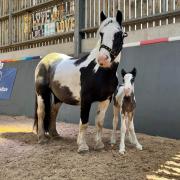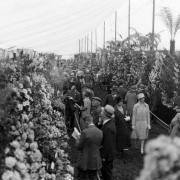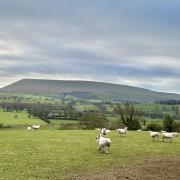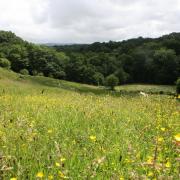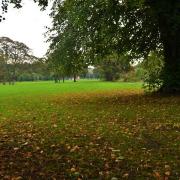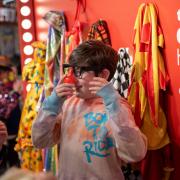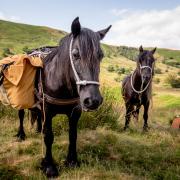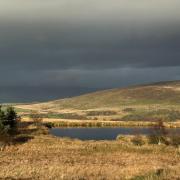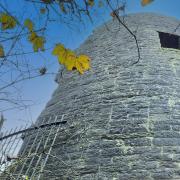A small family firm down a country lane is making a big noise in the shotgun trade. Roger Borrell reports

Tycoons across the Atlantic used to talk in a determined fashion about getting a bigger bang for their bucks. That’s just what one Lancashire family firm is doing – except they are doing it for fewer bucks and it is causing quite a noise in the exclusive world of shotgun manufacturing.
The red rose county has a history of innovation in gun-making. In the 1850s Manchester engineer Sir Joseph Whitworth worked tirelessly to produce a rifle from a single ingot of metal.
In the end, the level of engineering required meant the gun was just too expensive. Where Whitworth failed, Jim Longthorne Stewart and his wife Elaine have succeeded.
Working from a small but high-tech production unit down a country lane near Hesketh Bank, James and his team have created a weapon which is getting rave reviews from shooters and nervous glances from more expensive competitors.

Customers for Longthorne guns have included British aristocrats and royalty from the Middle East.
James has managed to conjure up the holy grail of gun-making – a sporting model with barrels engineered from one piece of metal. However, the real challenge was to make it affordable and that’s just what he has done. Not even Elaine knows the secret process, which is currently being patented worldwide.
In a sport where a pair of guns can cost £170,000 the Longthorne range begins at £13,900. It might seem a lot but for bespoke, made-to-measure shotguns it’s considered amazingly cheap.
Traditional gun-making is based on the blacksmith’s art. It requires a lot of soldering to put two tubes together and this reduces the strength while the heat causes tiny distortions which affect accuracy.
‘We took a very modern engineering approach to the problem and we have succeeded,’ says Jim. It means that this Lancashire village is one of the UK’s main centres for making bespoke shotguns and if sales projections are correct, they could soon be the biggest.
Jim and Elaine, who is in charge of marketing, have a long track-record at the sophisticated end of engineering. The couple, originally from the Knowsley area, have spent many years in engineering, working mainly with the aerospace and auto-sport industries.
They packed their bags in 1989 and emigrated from their Maghull home to Australia, where they built up a considerable business. The problem was they soon realised their biggest market was Europe and almost ten years later they returned to Lancashire.
Their desire to have somewhere to live and work led them to Hesketh Bank where they set up the ETM engineering business. ‘The plan was to partly retire – but that didn’t last!’ says Jim.
‘We wanted a product of our own and, because we were both keen on shooting, we decided to make our own guns. The process of making the barrel from one piece of metal is very difficult. It involved a lot of trial and error and that takes money.’
In 2010 they unveiled their gun, The Hesketh, at the CLA game fair. ‘When we told people about it they thought we were insane. Now, they’re not so sure,’ says Jim.
A cheaper but more accurate bespoke gun has certainly set tongues wagging among the shooting fraternity and created some resistance in a business where everyone has an interest in premium prices – except, perhaps, the customer.
One of their greatest advocates has been the Duchess of Rutland. She bought several and they produced the Rutland range in appreciation of her support. Elaine says: ‘Shooting is growing in popularity among women, particularly at the higher end of the market.’
She and the Duchess went on tour in the USA in 2012 to take part in trade fairs in New York and Dallas. ‘We had a lot of interest but we haven’t pushed it over there yet,’ says Elaine. ‘It’s a big market and we want to be able to satisfy demand.’
That will be a future challenge. Expanding the business will require more people with the right skills but they are hard to find. It also requires investment and the couple are determined not to simply hand over a slice to venture capitalists.
Longthorne has managed to maintain traditional values of a handcrafted gun while making full use of the latest technology. The stocks are made of Turkish walnut and their artistic daughter Chloe creates the beautiful designs for the engravings.
Jim says: ‘Britain lets itself down by the lack of government support for companies that require investment. This country has a track record of producing great engineering products only for US companies to come across with loads of money and take them over. We won’t let that happen. . ’
This year, Longthorne has sold 100 bespoke guns and next year that is expected to rise to 250. If growth continues at that rate, Lancashire will soon have the UK’s biggest makers of bespoke guns.
‘The trouble with that,’ says Jim, ‘is that I never have the time to go out shooting!’




